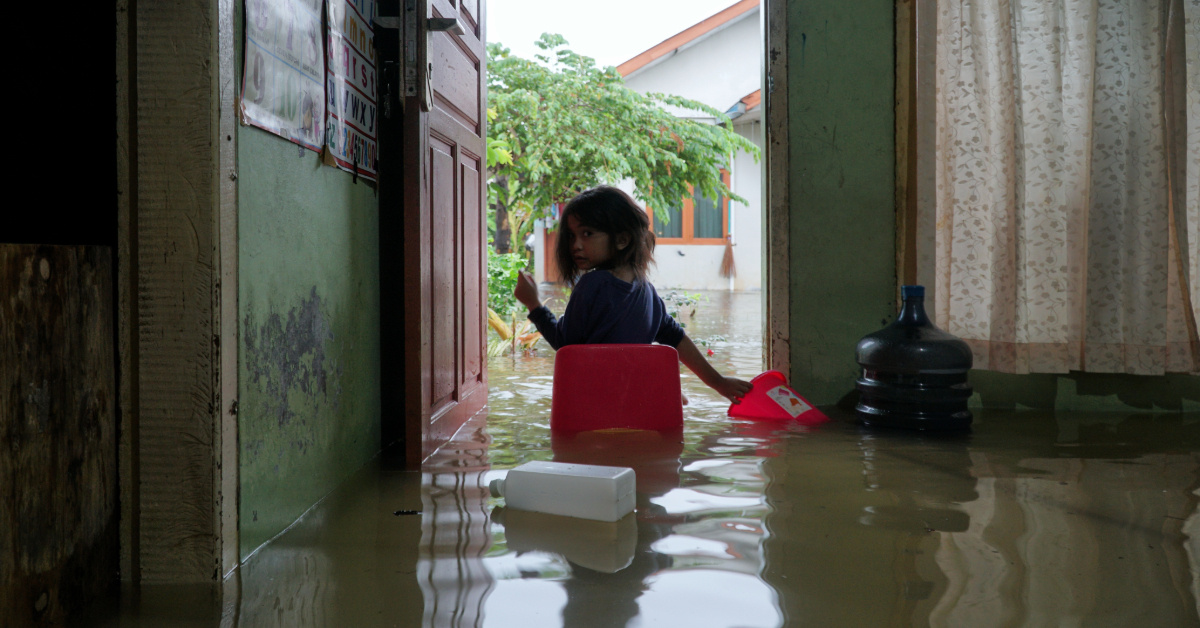
Oct 4, 2024 6:54:40 PM
Hurricane Helene has left a trail of devastation across parts of North Carolina, with severe consequences for communities, schools, and children. The storm's powerful winds and torrential rains have caused widespread flooding, damaged infrastructure, and forced thousands of families to evacuate their homes. Schools, which serve as critical centers for both education and community support, have been hit particularly hard, leaving many students displaced and their education disrupted.
One of the most pressing concerns following Hurricane Helene is the state of schools in affected areas. Many schools have been closed indefinitely due to flooding, structural damage, and power outages. The damage to school buildings ranges from flooded classrooms to destroyed roofs, making it unsafe for students and staff to return.
In some areas, temporary shelters have been set up in school gymnasiums, converting education spaces into emergency relief centers. While this provides a safe haven for families, it also delays the reopening of schools, further prolonging the disruption to students’ education. According to North Carolina's Department of Public Instruction, the full extent of the damage is still being assessed, but officials warn that it could take weeks, if not months, for many schools to resume normal operations.
Beyond the physical damage, the storm has had a profound impact on the mental health and well-being of children. Displacement from homes, the loss of belongings, and the uncertainty surrounding when they can return to school have added layers of stress for students. For many children, school represents a sense of normalcy, routine, and safety—an environment where they can escape the stresses of home life. The prolonged absence from this environment could lead to long-term emotional and psychological effects.
Mental health professionals are particularly concerned about the impact on children from low-income families, who are disproportionately affected by natural disasters. These students often rely on school services not only for education but also for meals, counseling, and healthcare. The lack of access to these services during the recovery period could worsen existing inequalities.
The recovery effort for schools will be a massive undertaking. Local governments and school districts are working together to assess damages and create a plan for reopening. The process involves not only rebuilding damaged infrastructure but also ensuring that schools are equipped with the resources necessary to support students’ academic and emotional needs upon their return.
Many organizations, both local and national, are mobilizing to support schools during this critical time. From providing temporary learning spaces to donating educational materials, these efforts are aimed at minimizing the long-term impact on students. However, there is still much to be done, and the road to recovery will be long.
For those looking to provide support, several organizations are on the front lines, helping to rebuild schools and provide relief for children affected by Hurricane Helene. These organizations offer various forms of assistance, from monetary donations to volunteer opportunities.
Here is a list of child-focused and North Carolina-based organizations where people can donate or get involved:
The devastation caused by Hurricane Helene will have lasting effects on North Carolina’s schools and its students. While the rebuilding process will take time, there are many ways to support children and schools in need. Donating to organizations that focus on child welfare and educational recovery is one of the most effective ways to help these communities heal and ensure that students can return to school as soon as possible. Every contribution, no matter how small, can make a difference in the lives of children impacted by this disaster.
The story you tell yourself about your own math ability tends to become true. This isn’t some Oprah aphorism about attracting what you want from the universe. Well, I guess it kind of is, but...
If you have a child with disabilities, you’re not alone: According to the latest data, over 7 million American schoolchildren — 14% of all students ages 3-21 — are classified as eligible for special...
The fight for educational equity has never been just about schools. The real North Star for this work is providing opportunities for each child to thrive into adulthood. This means that our advocacy...
Your donations support the voices who challenge decision makers to provide the learning opportunities all children need to thrive.
Ed Post is the flagship website platform of brightbeam, a 501(c3) network of education activists and influencers demanding a better education and a brighter future for every child.
© 2020–2024 brightbeam. All rights reserved.
Leave a Comment